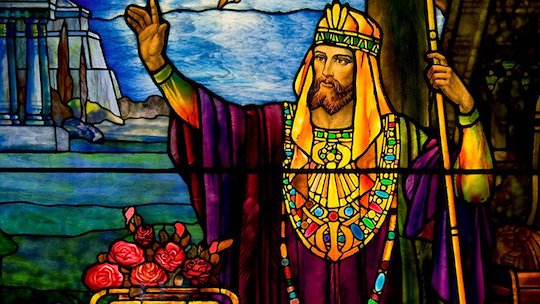After the death of King David, and with the support of his mother, the prophet Nathan, General Banaias and the high priest Sadoc, Solomon got rid of his political opponents (his step brother Adonijah and General Joab) and commenced a reign characterized by a long period of peace and good relations with neighboring populations (Egypt, Arabia, Phenicia, Edom and Damascus), during which the country experienced a great economic and cultural development.
Solomon ordered to build a fleet that had a base in the port of Esionguéber, next to Elat, on the shores of the Red Sea. With this, he boosted trade during his reign, which stabilized the economy of his country.
At that time, olive oil spread profoundly, there was so much olive oil in Israel that King Solomon began to produce in order to export it. I Kings 5:11 tells us that Solomon sent the king of Tire 100,000 gallons of Extra Virgin Olive Oil. Furthermore, it not only dominated trade relations, but international politics as well.
The economic prosperity, to which olive oil exports contributed, allowed the monarch to build the great temple that David had designed to shelter the Ark of the Covenant and a sumptuous royal palace in Jerusalem. A large number of foreign technicians participated in the constructions. For example, there were masons and bronzemen from Tire and carpenters from Gebal. Also, they imported luxurious materials from Phenicia.

